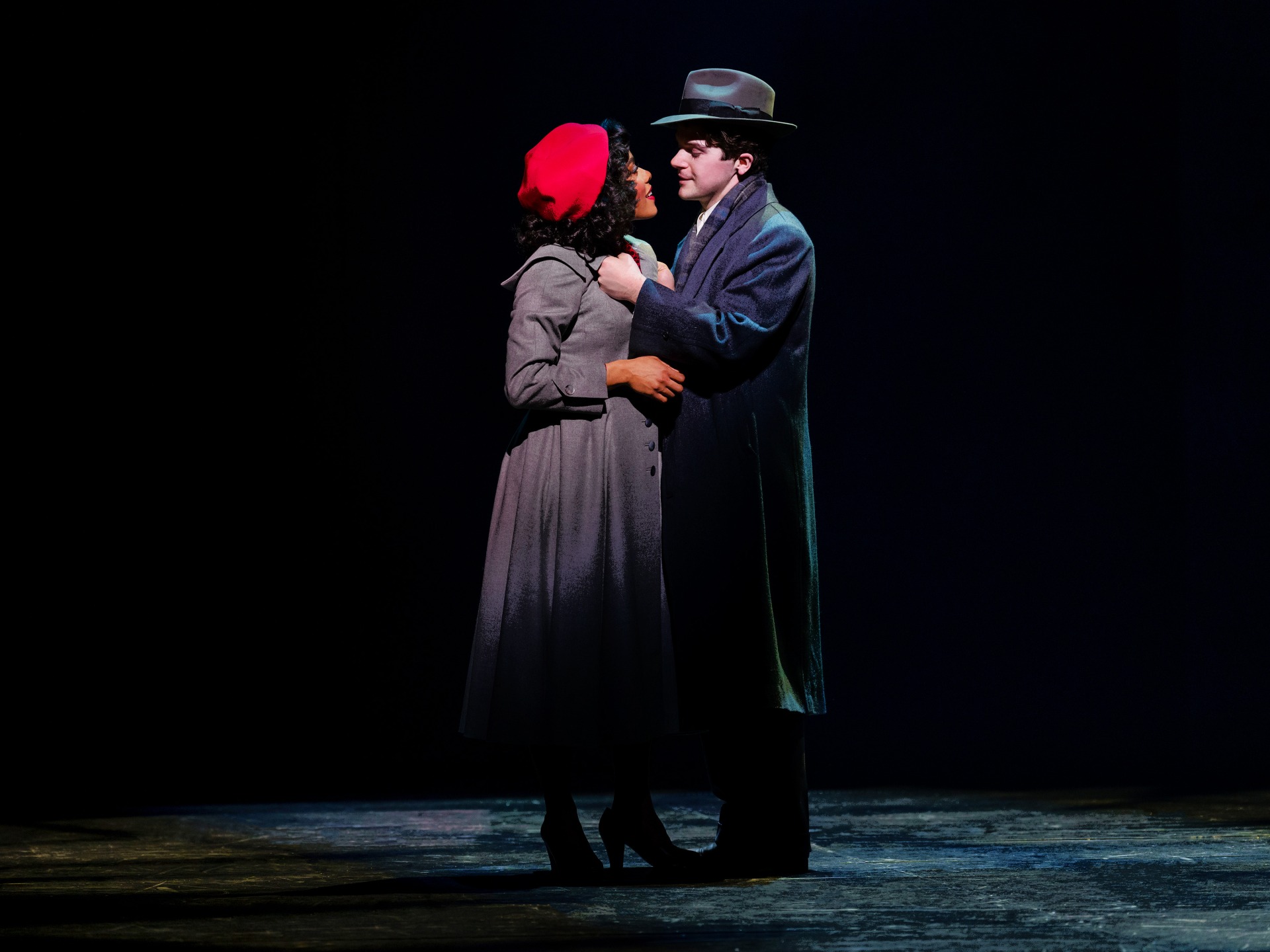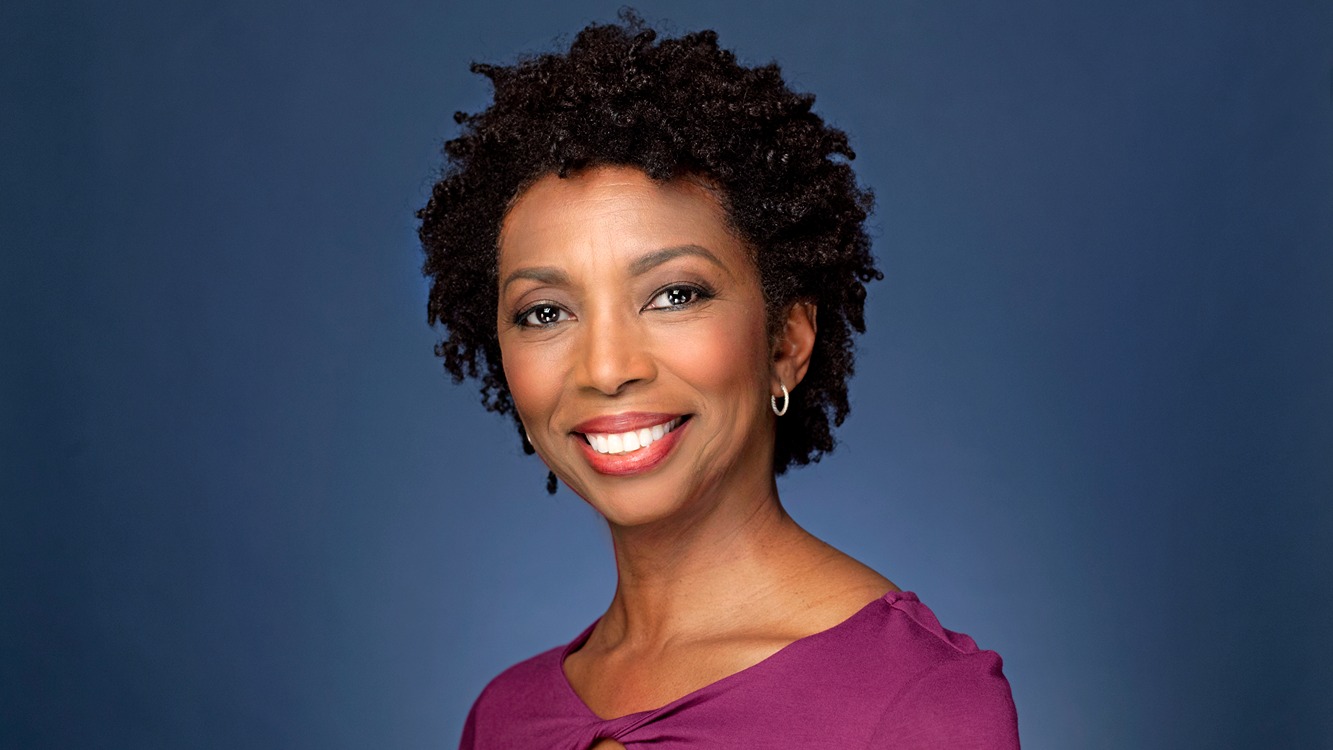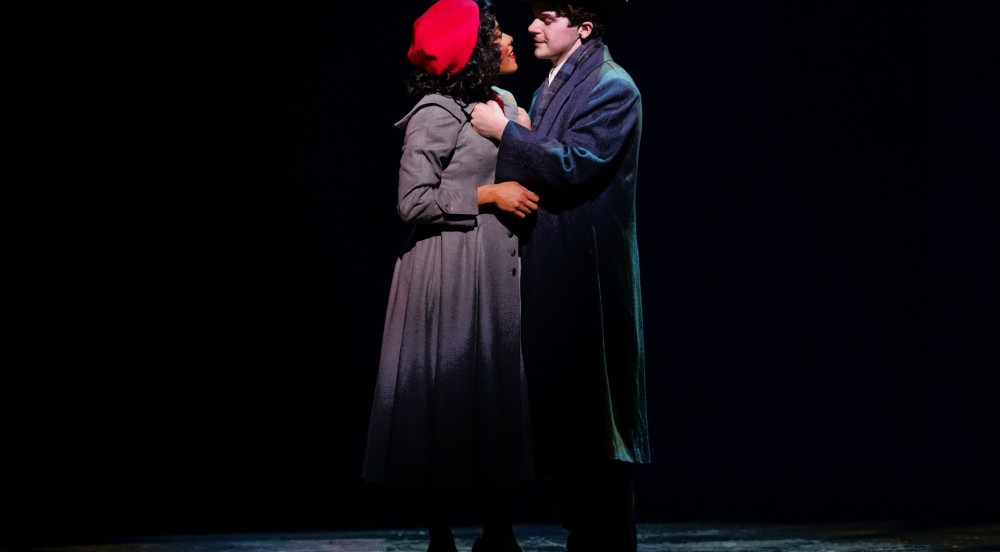The new musical New York, New York is up for nine Tony nominations, including Best Musical and Best Book of a Musical. Actor and playwright Sharon Washington co-wrote the production, which is loosely based on the 1977 Martin Scorsese film of the same name.

In this new incarnation, Francine, originally played by Liza Minelli in the film version, is portrayed by rising stage star Anna Uzele.
“Francine was already a young African American woman when I first read the script, so I was even more intrigued and excited to be involved,” Washington reveals, adding that she dove deep into the lives of Black women in New York City circa1946 to bring the role to life.
“I looked through old periodicals from the 1940s, newspapers and magazines—including EBONY! I read letters to the editor and product advertisements, researched the fashions of the time and the jobs we had, how we got around and where we socialized besides Harlem to find first-hand accounts of the period,” she adds.
Washington wanted to show that Black women of the time weren’t just cleaning ladies and nannies, "but also bookkeepers and secretaries, like my own mother, nurses, waitresses, small business owners, seamstresses, sculptors, librarians and musicians,” she declares. “There are many stories that we’ve never seen or heard and I felt if could get even just a few up on that stage I would feel like I’d accomplished something.” Francine is an amalgamation of real people and experiences from stories borrowed from Washington’s family and family friends.
The musical is also an opportunity for Washington to highlight the diverse city from decades past. “I am a native New Yorker going back generations, so I’m always hypercritical of stories that are supposed to be about the city but never show the city I know and love, with all its richness, or reference the stories I’ve grown up hearing all of my life,” she says. “My uncle was a longshoreman, but I’ve never seen a Black longshoreman on stage. I’ve never seen a Black librarian or a Chock full o’ Nuts waitress. My father was a World War II Navy vet, but I can’t remember if I’ve ever seen a character like him in a Broadway musical, not specifically written as a Black man and all that came with how Black vets were treated upon their return. My personal mission was to see some of these invisible stories made visible, if only for a moment.”
One of the biggest stories New York, New York explores is of interracial marriages in the 1940s. The Loving vs. Virginia ruling, which found that state laws outlawing interracial marriage are unconstitutional under the Equal Protection and Due Process Clauses of the Constitution's Fourteenth Amendment, was not issued by the U.S. Supreme Court until 1967.
“It’s not something we went in thinking we were going to explore or highlight specifically. We always planned to address it, but we wanted it as just one part of a bigger, more complex story,” Washington shares. “But over the past two years as more and more civil rights have been eroded and outright reversed in this country, that piece of the story took on more weight which is reflected in the script.”

Washington’s research led her to a family friend whose parents, an interracial couple, had married in the 1940s. “I asked them a lot of questions about how their families reacted, where they were comfortable going to in the city at that time and what was the response to them on the streets of Manhattan, did people give them a second glance,” she reveals. “We want our audience to root for Francine [and Jimmy]: for their love and for their right to love whoever they loved, and at the same time not shy away from how difficult it would sometimes be for them. And for Francine especially, as she tries to convey to Jimmy that we as Black women (and men) have always had to be more conscious of the way we move through the world and how we are perceived. As she says to him during an argument, 'I don’t have that luxury.' We don’t have the luxury of not being aware."
Washington is one of a handful of Black female playwrights who have had the opportunity to bring her voice to the stage. She’s ready to have more voices heard. “We have to keep doing what we’re doing. We have to keep telling our stories and speaking our truths,” she says. "If we can bring them into a world that on the surface may seem completely foreign to their experience but where they ultimately find we have more in common than they thought, then we will have the opportunity to tell even more stories.” She is an advocate for bringing more financial support to Black theater and opening more doors to young Black writers.
“We must nurture them and set them up for success. No show comes straight to Broadway without years of development, from new play workshops to regional and Off-Broadway collaborations and maybe then to Broadway," she continues. "All along that journey there has to be support—both financially and artistically—to birth a new work.”













